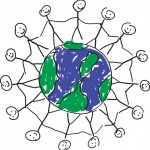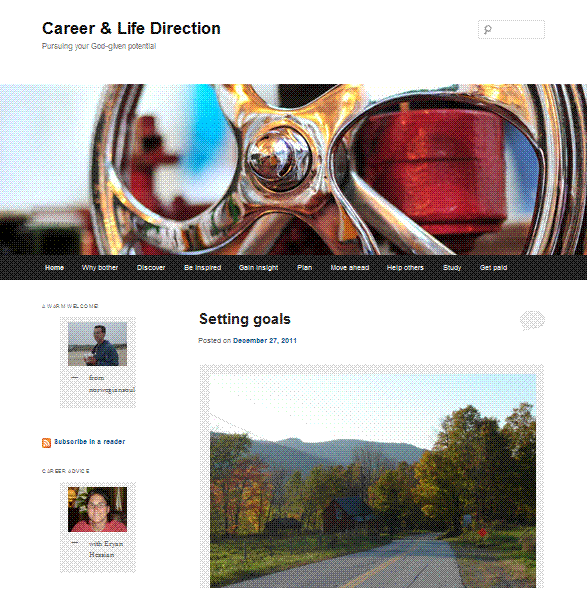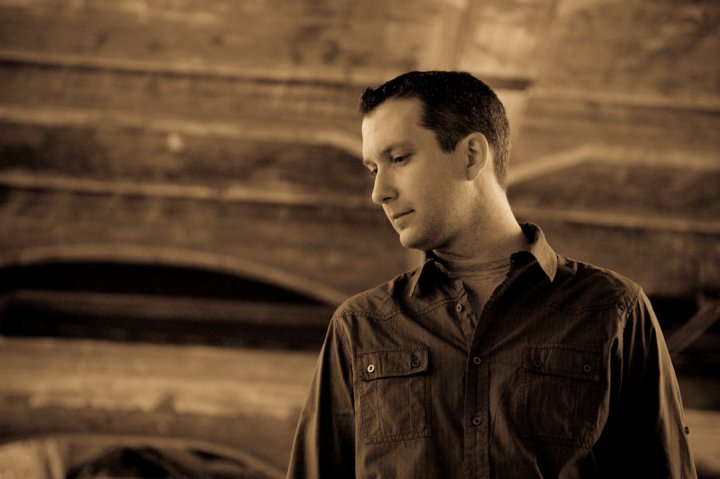Getting things done
- At August 14, 2015
- By Nathan
- In Effective living
 0
0
While I have never been to China, my impression is that China is one country where a great deal gets accomplished in a short period of time. Meanwhile, I can’t say the same thing about my home country – Canada.
By any measure, China has experienced amazing growth and transformation during the past 50 years. As a result, many other countries are lining up in an attempt to cash in on their success. While I wouldn’t want to live under a communist dictatorship, I would like to live in society where there are signs of tangible progress. This isn’t to say that growth is always entirely positive or that China will turn out to be a benign major power in this world. But I really like the fact that the Chinese government, and many citizens in that country, have found a way to get things done.
It’s tempting to launch into a rant about what has gone wrong here in Canada. For it sometimes seems like 78 studies are required and 49 regulations must to be considered before a light bulb can be changed over at the House of Commons – that is, if this practice isn’t said to be in conflict with the Charter and the Constitution as interpreted by the feelings of the lawyers over at the Supreme Court last Monday morning. It is easy to point out that there is presently too much articulate talk and not enough plain and ordinary action. But this approach would also fail to appreciate the progress that has been made, the safeguards that are likely necessary, and the complexity that is often involved when considering public ventures.
As the saying goes, if I want change I also need to be willing to be the change. And I have noticed, as of late, that positive change in my own life requires a large amount of effort and seems to take a very long period of time. If I am slow, how can I expect everything around me to take place at a record pace?
But in the end, maybe it doesn’t matter so much whether you or I are getting important things accomplished at a record pace or over a protracted period of time. What does matter, though, is that significant projects are gradually being checked off of our “to-do” lists and we are moving in the right direction. It has often been mentioned that life isn’t just about doing things at a frantic pace – as important as they may seem. And yet, it is very important to get in the habit of getting important things done.
Does this sound too obvious to even mention? Is this observation for the more task-oriented folks who may have inadvertently stopped by? Should this message ideally be directed towards a few Facebook addicts you know?
What I like about this topic is that it forces (or perhaps invites) each one of us to think about what we need to focus on at this time. And this will be different for each person. The idea is to get moving if it becomes apparent we are perpetually stuck or that a time of rest and refreshment has turned into a prolonged distraction from important duties. By way of example, I am going back to school this fall and moving to another city in order to do that. So most of my energy must be focused in that direction. Nobody is going to find a place for me to live or sign me up for the required classes or read the stack of books I need to read, etc.
How about you? I very much appreciate that you stopped by this website site. But if I can be quite direct, without hopefully causing any offence, here is a question to consider:
What should you really be doing right now?
If it isn’t clear what you need to focus on, spending time at a website like this could help you eventually establish goals and begin to move. In other words, if I don’t know what to do I need to make figuring out what to do a priority. Working at discerning your next step is a worthwhile and absolutely necessary activity. It requires effort and should be defined as valuable work. It might not look like you doing much when in reality you are doing exactly what you need to do.
My decision to go back to school and study public policy is actually the result of several years of sustained reflection. Did I mention that I am slow? So don’t get discouraged if your own attempt to clarify your life direction seems to be taking a very long time.
On the other hand, if it is quite clear where your energy needs to be directed and yet you have failed to take the necessary first or second or third step…then lingering online much longer could become a problem.
Driving by a government building some time ago, my wife mentioned in a lighthearted way, “That’s where they make the red tape.” It was a funny comment at the time and contains an element of truth. And yet, it is sobering to realize that we each have the capacity to act and can’t really blame the government or anyone else if we choose not to.
© Career & Life Direction 2015. All rights reserved.
A humdinger of a wingding
- At June 07, 2014
- By Nathan
- In Effective living
 0
0
This title actually has nothing whatsoever to do with this post, but these words seemed to fit together so nicely that I thought it best not to pass up the opportunity to string them together in such a form. That, and of course, you’re always supposed to have catchy opening line – right?
It turns out that “wingding” is defined as a wild party in my dictionary, which is too bad. I prefer to define this interesting word as any old gathering of good-natured people who happen to be enjoying themselves and each other.
Quite a few years ago, my wife and I were invited to a Christmas party organized by a group of senior citizens at our church. And that happy event would certainly have qualified. I’ll always remember it. Those old-timers knew how to laugh and have a really good time.
Moving right along.
It goes without saying, that Career & Life Direction is not likely the center of anyone’s universe; I would be worried if it was. And yet, perhaps I should offer a word of explanation for my prolonged absence from this website. It has been quite a while since I have added anything at all to this online resource.
My last article featured seven Christian recording artists in Canada and highlighted the importance of encouragement in their lives. In an attempt to provide more exposure to everyone involved, this project was also eventually published in another online venue. This whole endeavor was a major ordeal, and I with all my other responsibilities, frankly, wore me out.
Working crazy hours and trying to work on all of this at the same time was too much. But such is life. It is humbling to be human and to have limits.
Having said that, I really enjoyed reading the stories each artist sent in and appreciated their involvement. And I hope that you did too. Jennifer Jade Kerr, Dan Bremnes, Marika Siewert, Colin Bernard, Amy Degenais, Stephanie Israelson, and Chelsea Amber have all benefited from having people in their lives who encouraged them to develop their musical potential. And now, we can all benefit from listening to their music.
And while this project was tiring and time-consuming I don’t regret it. For it fit in nicely with my own mission-statement, providing one specific and tangible way to accomplish my stated goal, which is:
“To help restore Western civilization as a light in God’s world by encouraging the development of healthy and growing Christian communities and expanding the influence of Christian individuals and organizations. And, at the same time, to encourage everyone else to develop their own God-given potential for the common good.” Basically, I am trying to help good things grow.
It was my wise wife who suggested, in an off-hand remark, that perhaps I should take on such a project. So I did. And I am glad that I did. She actually recently finished her own recording project, and I now know a little more about what it takes to make good music. Perhaps I will say more about her project another time. But I will say this: Making a CD requires a massive amount of effort.
Making music certainly isn’t easy. Like so many other things in life, you never really know exactly what is involved – or how difficult it is – until you give give it a try. From a distance, things sometimes look easy and straightforward. But usually only from a distance. So it goes.
Your calling and mine will likely require all that we’ve got to give.
© Career & Life Direction 2014. All rights reserved.
Making a mission statement
- At January 16, 2013
- By Nathan
- In Career & Life Planning
 0
0
What is a mission statement?
A personal mission statement is a brief summary of your life focus. As such, it is larger than a career and much bigger than a job. And while it connects to your deepest convictions, it adds more information. Your statement is unique to you. It serves to direct your entire life by identifying the larger dreams and goals that drive you.
How do you make a mission statement?
It isn’t easy. Don’t expect it to be easy. You likely won’t find a quick formula or method to produce one. Although here is a suggestion: Give yourself, say, five years to live a busy, shallow, frantic, and non-reflective life. Then, stop and intensely reflect on the futility of the past five years. Meditate long enough to become good and frustrated. At this point, pull out a piece of paper and write down what you would much rather be doing with your life.
What does a mission statement look like?
My larger goal is to help restore Western civilization as a light in God’s world by encouraging the development of healthy and growing Christian communities and by expanding the influence of Christian individuals and organizations. At the same time, I hope to inspire people everywhere to develop their God-given potential for the common good.
Why bother working on a mission statement?
While there are likely many reasons, here are a few to consider:
1. To identify larger goals
A mission statement, or whatever you feel like calling it, will help you spend your time and focus your energy on something significant. Each person reading this is small and limited and can’t do everything. That being the case, what are you going to do with your life? How will you spend your time? Decisions must be made.
Writing down significant goals amounts to saying, “I am going to aim for this and not that.” So if you are tired of drifting along, doing a little of everything or a lot of nothing, you might want to work on your mission statement.
2. To set personal boundaries
A mission statement functions like a personal boundary. In other words, it is like a fence that separates your yard from your neighbour’s. For the most part, what your neighbour does on his land is up to him. If George began enriching uranium in his garage and building nuclear missiles pointed at you…now, that might be different. Usually, though, what George does over there is up to him and what you do – in your yard – is up to you. That’s how it works.
Do you ever feel like you are living someone else’s life? If so, you might need to have a look at your fence. Is it still there? Does it need repair? Take the time to establish your personal boundaries by formally identifying your life direction.
3. To discover core convictions
A mission statement will force you to think about what you believe. Unless, of course, you adamantly refuse and choose not to. Although that may be difficult. But do you really want to live a random and arbitrary life? The catchy slogan, “Practice random acts of kindness” could just as easily have been, “Practice random acts of cruelty!”
Sure, having strong convictions does not necessarily result in more of heaven here on earth. It all depends on what you truly believe. Look at Mali. But a widespread “whatever” mentality is good news if you were hoping for a little more hell. So keep asking “Why?” until you get answers. Go from there.
The short answer, is that it is a good idea to write a mission statement because this is another excercise that could help you reach your true potential.
Attempting to write a mission statement makes sense once you realize that writing is the process by which people usually discover things they don’t aleady know.
© Career & Life Direction 2013. All rights reserved.
Focus, focus, focus
- At May 09, 2012
- By Nathan
- In Career & Life Planning, Meeting Needs
 0
0
 Setting up my tiny tent on a sandbar on the edge of a large creek in the Rocky Mountains seemed like a good idea at the time.
Setting up my tiny tent on a sandbar on the edge of a large creek in the Rocky Mountains seemed like a good idea at the time.
Sand was soft, and so this site was very attractive. There were very few annoying rocks to deal with. Pounding in the tent pegs was no problem at all. On top of that, the surface was flat. And it would be peaceful to be surrounded by water and quiet too. The noisy campers over there on the hard, rocky, ground wouldn’t keep me awake after all.
Yes, I had finally found the perfect place to get a good night’s rest. Don dug a hole in order to find soft, level, ground for his tent. Surely this campsite idea was an improvement on that. Or so I thought.
Read More»Robert’s life direction
- At April 30, 2012
- By Nathan
- In Meeting Needs
 0
0
Purpose. Focus. Energy. Direction. People tend to pick up speed when they are moving towards a clear destination – when they are going somewhere that matters.
His household buzzes with activity as he sits down to grab a quick lunch on his front porch in Lennoxville, Quebec. It is a warm summer day. Sure enough, the phone rings. This time it is Hulio, the head soccer coach at the University of Sherbrooke and a friend. As the assistant coach of the team, Robert quickly flips into French and talks about the upcoming game against Carlton University in Ottawa.
Read More»Information overload
- At September 02, 2011
- By Nathan
- In Career Planning
 0
0
 Clarifying your career direction will require taking the time to find the strategic information that you need to make decisions and move ahead. Being unable to choose which direction to take often indicates that, while you may have all sorts of information bouncing around in your brain, you do not have the specific information you need right now.
Clarifying your career direction will require taking the time to find the strategic information that you need to make decisions and move ahead. Being unable to choose which direction to take often indicates that, while you may have all sorts of information bouncing around in your brain, you do not have the specific information you need right now.
So, if you feel stuck, turn off your TV/Internet/cell phone and sit down with one sheet of paper before you. Write down what you really need to know on the left hand side and how you might go about acquiring that information in a timely fashion on the right. You might be surprised how this simple exercise will focus your attention and your energy.
If you wanted to, say, plant a flower garden you would need to know what type of flowers would do well where your flower garden is going to be. It may be interesting but it really won’t help much to read up on flourishing flower gardens in Siberia – unless of course that is where you live. Once you have determined what you need to know you can figure out how to find what you need. Watching the evening news for the next 10 years might eventually provide you with that information and so would one phone call to the local flower shop.
If you wanted to learn how to provide a specific, marketable, tangible service that is in demand, like nursing care, you could then easily determine the research that is required. If you really do not have any idea what you want to do your situation will be more difficult, but you can still consider how you might get to know yourself and more accurately discern your authentic desires.
Focus. Focus. Focus. Most of the information that drifts in your direction will be useless when it comes to clarifying and acquiring a career. Determine what you need to know and only then get back on the Internet and the phone in order to find it.
© Career & Life Direction 2011. All rights reserved.




































